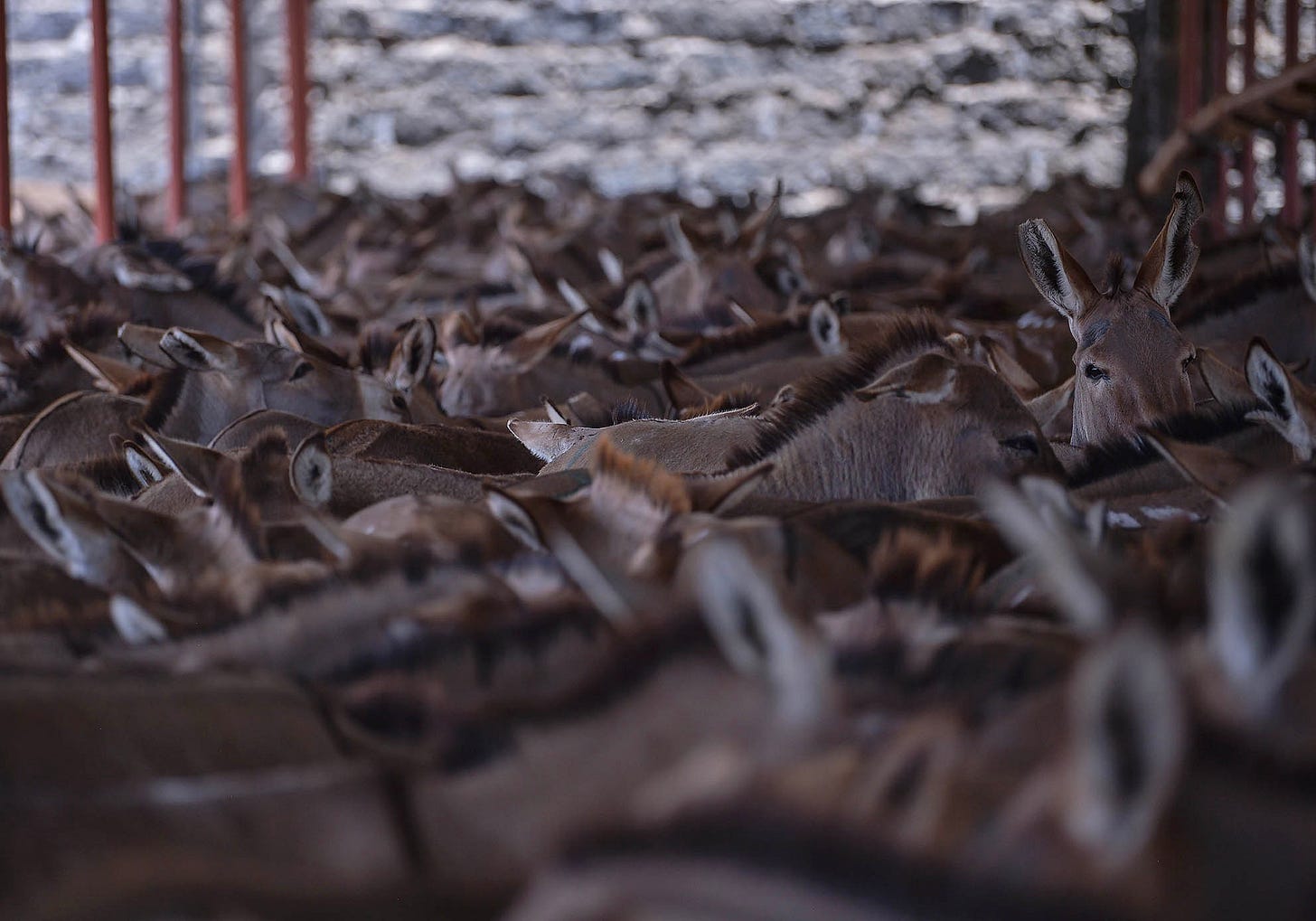A safe space for donkeys
Donkey smuggling is a big business. Kenyan police have had some success in targeting the criminal gangs responsible. But for donkeys that are rescued from a brutal death, the story does not end there.
In a field in the village of Karagita, just outside Naivasha town, more than 200 donkeys are grazing. Despite the presence of a police station nearby, at least 15 guard dogs are on the premises and security guards are on call. But for a multi-agency rescue operation, these animals would have ended up on someone’s dinner plate, and their skins smuggled to China.

The donkeys’ deaths would have been brutal – at the hands of a sophisticated organised crime syndicate in Ndeiya, Kiambu County. Several law enforcement officials described to The Continent how the syndicate, which illegally slaughters hundreds of donkeys a year, works.
Donkeys are purchased in local markets and transported by lorry to a slaughterhouse in the bush where they are killed with blunt force (a metal pipe or hammer) and skinned – all in less than three minutes. A waiting boda boda will dash off with the meat for sale. The skins go to various middlemen who load them onto waiting boats on the Kenyan coast, or smuggle them through customs at one of the country’s international airports.
The trade in donkeys is driven by the demand for collagen extracted from their hides, known in China as ejiao. This is believed to be a panacea for all kinds of ills, including anaemia, insomnia and infertility; and is said to enhance beauty, combat ageing and boost libido.
Some of this trade is legal but such is the demand that smuggling gangs began to emerge. In Kenya, while the commercial slaughter of donkeys was banned in 2020, a loophole in the law kept the export of their hides legal. Trafficking them remains a lucrative business.
Between eight and 10 million donkeys are killed annually to meet the worldwide demand for ejiao, according to the Pegasus Foundation, an organisation that aids in rescuing and rehabilitating domestic and wild animals.
Stepping up for the beast of burden
Established by the Kenya Society for the Protection and Care of Animals (KSPCA), the Karagita sanctuary is one of several that have been created to protect donkeys that are rescued in police raids on smuggling gangs.
In just four months earlier this year, the KSPCA received 269 donkeys that were rescued from illegal butcheries, says Raphael Ngome who manages the organisation’s Donkey Project.

At the sanctuary, rescued donkeys are medically examined, vaccinated for tetanus and rabies, and dewormed. “They also get dental, and hooves care as well as proper diet and water,” said Ngome.
But sometimes, all that has to wait for their trauma to subside.
“Many do not even allow us to touch them until we form a bond with them over time,” says Josephat Machinji, a KSPCA officer. It often takes a lot of convincing for the traumatised and skittish new arrivals to be reassured that these particular humans are for them, not against them.
Depending on their conditions, donkeys will stay in the safe house for anywhere between a week and several months, after which they are rehomed. Those that are too ill to recover are euthanised.
“They need all the love, care, and protection they can get, and I am just playing a small part in ensuring that they remain protected,” says Machinji.



